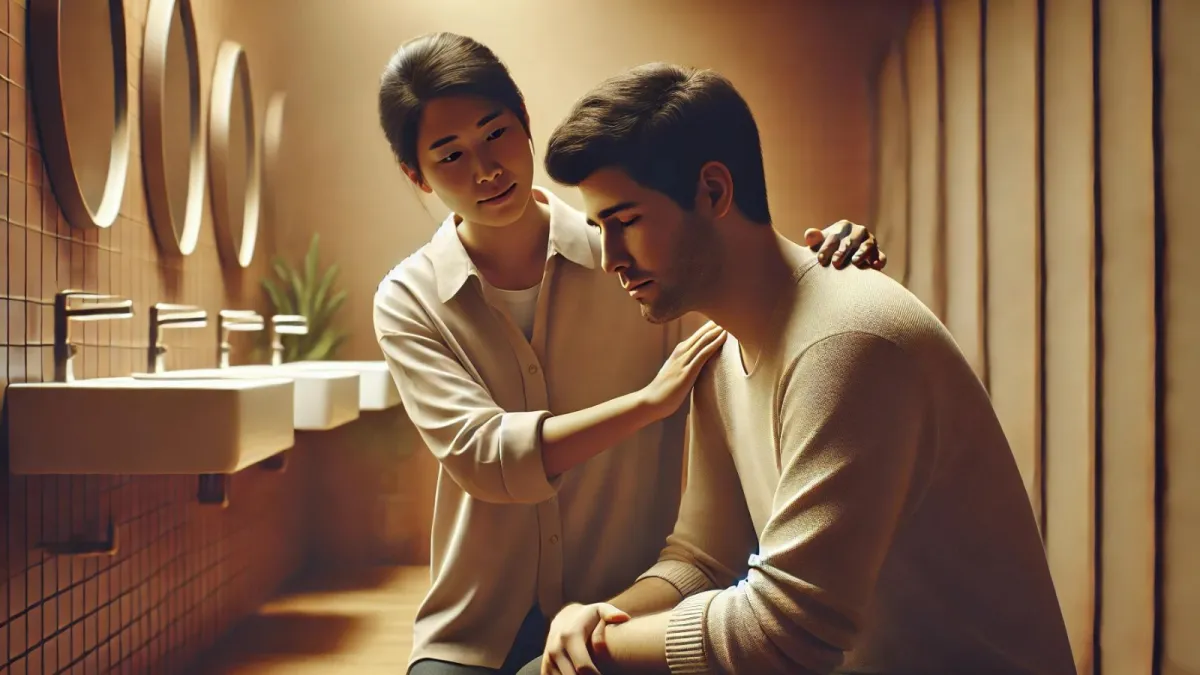
Overcoming Shy Bladder Syndrome: The Ultimate Guide to Regaining Your Confidence and Freedom
Living with shy bladder syndrome, also known as paruresis, can be incredibly challenging. This condition, which makes it difficult or impossible to urinate in the presence of others, affects millions of people worldwide. The fear and anxiety associated with using public restrooms can significantly impact daily life, from avoiding social events to limiting travel. However, there is hope. With the right strategies and support, you can overcome paruresis and regain your confidence and freedom.
Understand Shy Bladder Syndrome
Shy bladder syndrome is more than just a simple nervousness about using public restrooms. It is a social anxiety disorder that can severely affect a person's quality of life. Understanding the nature of this condition is the first step toward managing and overcoming it.
Key Benefits:
Awareness: Gain a clear understanding of what paruresis is and how it affects you.
Recognition: Identify the triggers and situations that exacerbate your symptoms.
Validation: Realize that you are not alone and that many people share this struggle.
Techniques to Manage Anxiety
Anxiety is at the core of shy bladder syndrome, so learning effective techniques to manage it is crucial. Various methods can help reduce the anxiety associated with using public restrooms, making it easier to cope with the condition.
Key Benefits:
Breathing Exercises: Practice deep breathing to calm your mind and body.
Visualization: Use positive imagery to reduce stress and increase relaxation.
Progressive Muscle Relaxation: Learn to relax your muscles to alleviate physical tension.
Gradual Exposure Therapy
One of the most effective treatments for shy bladder syndrome is gradual exposure therapy. This method involves slowly and systematically exposing yourself to the situations that cause anxiety, starting with less intimidating scenarios and gradually working up to more challenging ones.
Key Benefits:
Step-by-Step Approach: Start with manageable situations and build your confidence over time.
Controlled Environment: Practice in safe and controlled settings before moving to more public areas.
Supportive Guidance: Work with a therapist or support group to navigate the process.
Cognitive Behavioral Techniques
Cognitive-behavioral techniques (CBT) are highly effective in treating social anxiety disorders, including paruresis. These techniques help change the negative thought patterns that contribute to anxiety and develop healthier, more positive ways of thinking.
Key Benefits:
Thought Reframing: Learn to identify and challenge irrational thoughts about using public restrooms.
Behavioral Strategies: Develop new habits and routines to reduce anxiety.
Positive Reinforcement: Reward yourself for small successes to build motivation and confidence.
Seek Professional Help
For many individuals, overcoming shy bladder syndrome requires the support of a professional. Therapists who specialize in anxiety disorders can provide personalized treatment plans and offer the guidance needed to make significant progress.
Key Benefits:
Expert Advice: Gain insights and strategies from professionals experienced in treating paruresis.
Personalized Treatment: Receive a customized plan tailored to your specific needs and challenges.
Ongoing Support: Benefit from continuous guidance and encouragement throughout your journey.
Join a Support Group
Connecting with others who understand what you're going through can be incredibly empowering. Support groups offer a safe space to share experiences, learn from others, and gain emotional support.
Community: Build connections with people who understand your struggles.
Shared Experiences: Learn from the successes and challenges of others.
Emotional Support: Gain encouragement and motivation from a supportive network.
Learn More - Click Here!
Marvin for What We Found Out
Disclaimer: Content on What We Found Out (https://whatwefoundout.com) is for informational and entertainment purposes only. We are not experts and do not offer professional advice. Articles may contain affiliate links, and we may receive compensation for actions taken through these links. We are not affiliated with Google, Meta, Facebook, Instagram, X, or any related entities. Please review our full disclaimer for more details.


